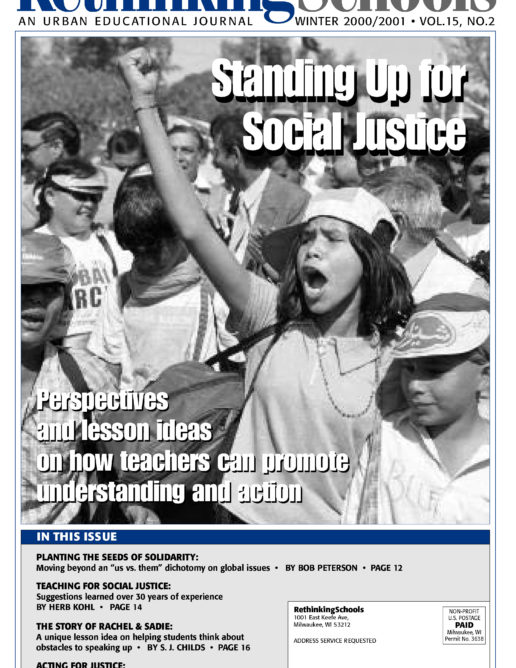Preview of Article:
Songs with a Global Conscience
Using songs to build international understanding and solidarity.
Ballad of the Soldier’s Wife, lyrics by Bertolt Brecht, music by Kurt Weill, sung by PJ Harvey. (September Songs: The Music of Kurt Weill CD, Sony Music, 1997). A telling tale of the human toll of foreign wars.
Bury My Heart at Wounded Knee, written by Buffy Sainte-Marie, sung by the Indigo Girls. (1200 Curfews CD, Epic Records Group, 1995.) A folk/rock song that critiques U.S. policy towards Native Americans.
Colonial Man, Hugh Masakela. (Colonial Man and Boy’s Doin’ It CD, Verve, 1998). A lively anti-colonial song that includes the understatement “Vasco Da Gama, he was no friend of mine.”
Famine, Sinead O’Connor (Universal Mother CD, Chrysalis Records, 1994). An angry song that describes how the Irish potato famine was actually a result of British colonialism.
1492, Nancy Schimmel. (Rainbow Sign CD, Rounder, 1992). A lively, pro-Native American song that asks the question, “Could anyone discover the place when someone was already here?” (Use is described in the publication, Rethinking Columbus).</p

